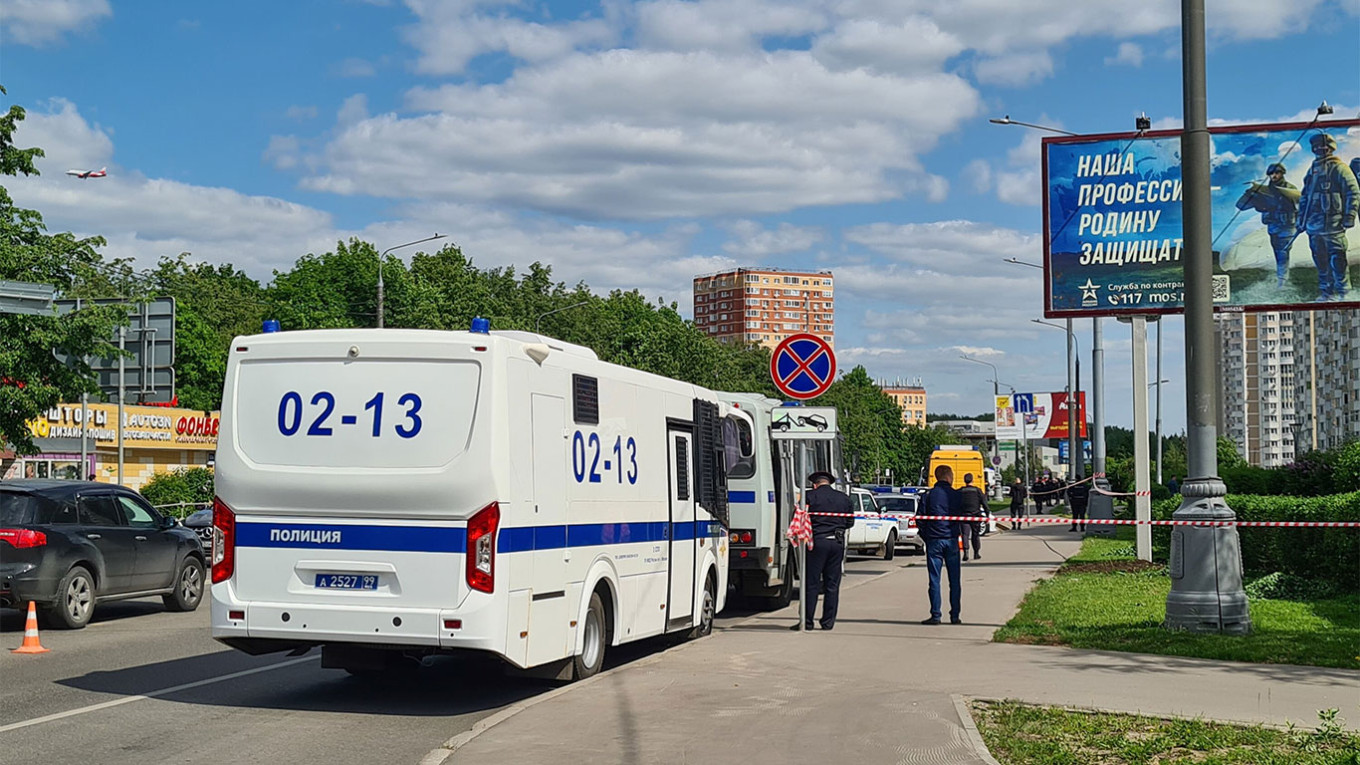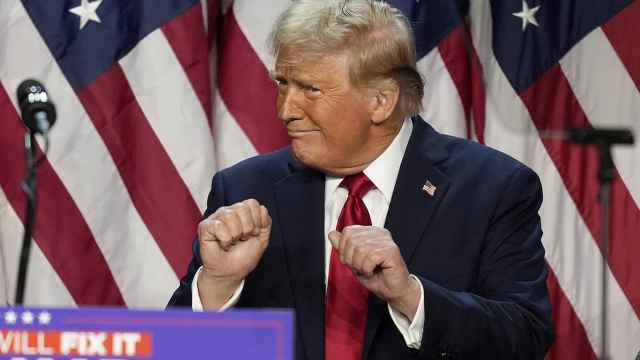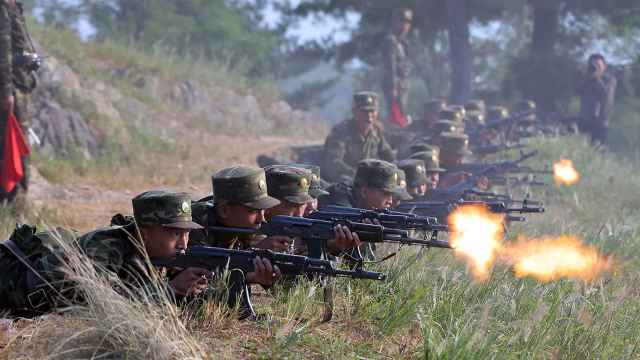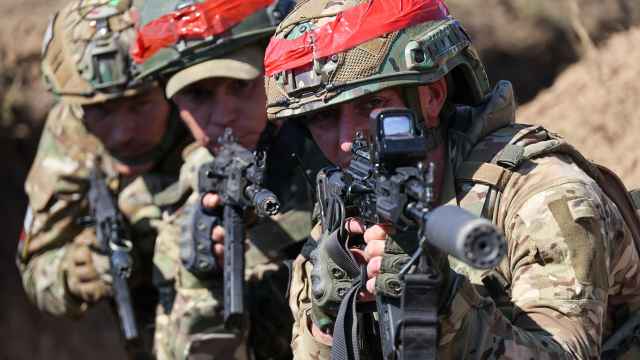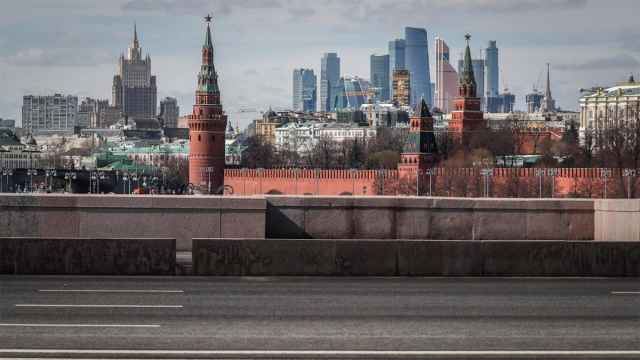Russian officials and pro-Kremlin voices were split over Tuesday’s unprecedented drone attack on Moscow and its surrounding areas, with some downplaying the attack and others sharply criticizing the country’s defense capabilities.
President Vladimir Putin called the incident a provocation by Kyiv but appeared calm in televised comments, saying that Moscow’s air defense systems “worked fine” while adding there was still “room for improvement.”
He said ambiguously: “We’ll see what to do with this.”
His spokesperson Dmitry Peskov, who also blamed the attack on Ukraine, stressed that there was “no threat” to residents of Moscow or the Moscow region in comments earlier Tuesday.
Andrei Kartapolov, the head of the State Duma’s Defense Committee, was similarly placid, arguing the drone attack was mostly aimed at creating panic among the population rather than achieving any military goals.
“We have a very large country and there will always be ways for a drone to bypass areas where air defense systems are located,” he said.
Others have been more damning in their assessments of the incident, describing it as an embarrassment for Russia.
Wagner mercenary group leader Yevgeny Prigozhin, who has been feuding with Russia’s Defense Ministry over its handling of the war for months, issued a scathing tirade against Defense Minister Sergei Shoigu, accusing him personally of failing to destroy the drones before they reached Moscow.
“You didn’t do crap to advance [in eastern Ukraine]. Why in the f*** do you let these drones fly into Moscow? The fact that they’re flying to your house in Rublyovka — well, to hell with it! Let your house burn. And what are normal folks to do when drones with explosives crash into their homes?”
Criticism also came from former Russian space chief Dmitry Rogozin, who since the invasion of Ukraine has sought to rebrand himself as a pro-war turbo-patriot.
"Good morning, Moscow! I hope the sweet dreams will go away now? Wake up, country!" he wrote on the Telegram messaging app.
Chechen leader Ramzan Kadyrov, who has regularly called for more drastic battlefield tactics, said "We will soon show in the [special military operation] zone what revenge is in the full sense of the word.”
State Duma deputy chairman Pyotr Tolstoy called for a firm response to the attack.
“Yesterday, [Belgorod] Governor Vyacheslav Gladkov said what needs to be done in order to end strikes against the Belgorod region — annex Kharkiv,” he said, referring to Ukraine’s second-largest city which lies across the border from Belgorod.
“In order to stop strikes against Moscow, we need to take Kyiv,” he added, while also arguing that a large-scale mobilization was needed to defeat Ukraine.
Meanwhile, flagship Russian state broadcaster Channel One dedicated more than half of its morning news program to the drone attack, an unusual move compared to past similar incidents that received minimal coverage such as the drone strike against the Kremlin in early May.
Channel One showed extensive footage of Tuesday’s attack and included on-the-ground reporting by correspondents who spoke to eyewitnesses, one of whom described the explosions as “frightening” and “so powerful that I don’t know what to compare it with.”
Although the channel’s reporters did not directly blame Ukraine for the strike, the news presenter stated that “terrorist attacks” against Russian civilians are a “policy supported by the Kyiv regime.”
A Message from The Moscow Times:
Dear readers,
We are facing unprecedented challenges. Russia's Prosecutor General's Office has designated The Moscow Times as an "undesirable" organization, criminalizing our work and putting our staff at risk of prosecution. This follows our earlier unjust labeling as a "foreign agent."
These actions are direct attempts to silence independent journalism in Russia. The authorities claim our work "discredits the decisions of the Russian leadership." We see things differently: we strive to provide accurate, unbiased reporting on Russia.
We, the journalists of The Moscow Times, refuse to be silenced. But to continue our work, we need your help.
Your support, no matter how small, makes a world of difference. If you can, please support us monthly starting from just $2. It's quick to set up, and every contribution makes a significant impact.
By supporting The Moscow Times, you're defending open, independent journalism in the face of repression. Thank you for standing with us.
Remind me later.


